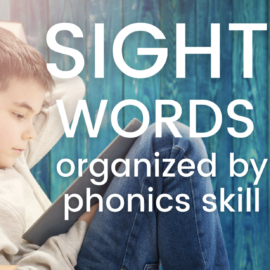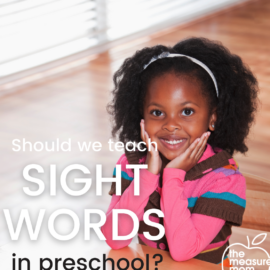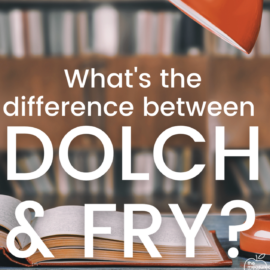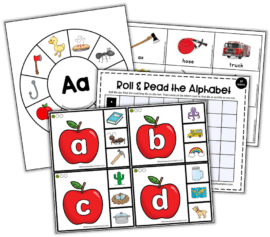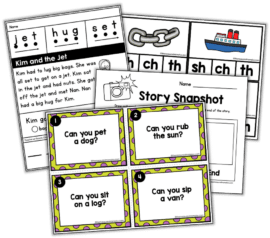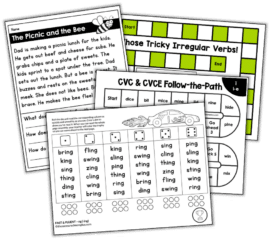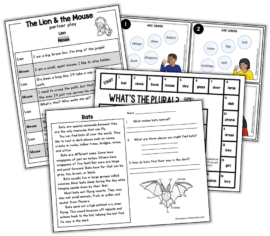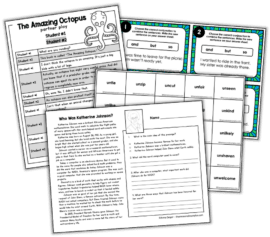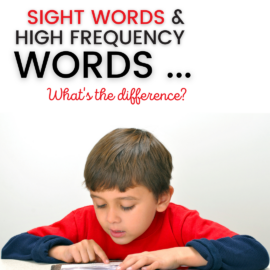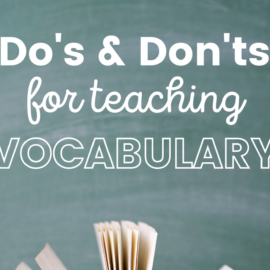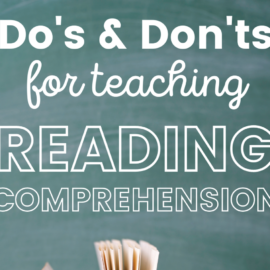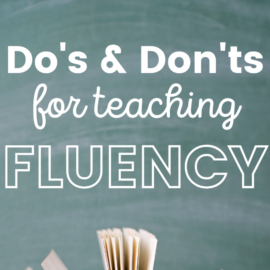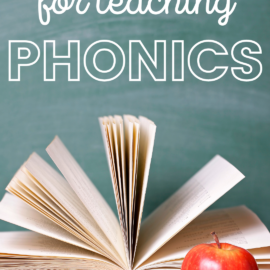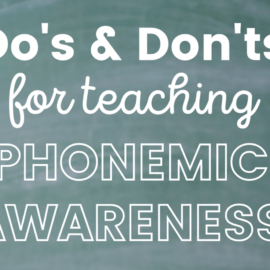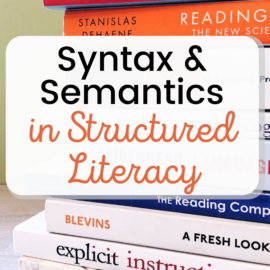A small number of words make up a large percentage of the words that appear in print. These are called high frequency words. It's important that our students recognize a large number of high frequency words by sight so they can read fluently. We call these words - the words they recognize instantly without needing to sound out or guess - their sight word vocabulary. In essence, we want our students to turn ... Read More
Preschool Sight Words
How should I introduce sight words to preschoolers? What is a good sight word list for preschoolers? Where can I find preschool sight word worksheets? These are all questions I've heard from parents who are eager to get their children on the right path when it comes to learning to read. They are all good questions, but I think we need to back up and ask this question first: SHOULD we teach sight words ... Read More
What’s the difference between Dolch and Fry sight words?
In our first post of this series we explained the difference between sight words and high frequency words. Sight words are words we know by sight, without needing to sound them out or guess. High frequency words are words that appear frequently in the English language. But where do we get these high frequency words FROM? Enter Dolch and Fry. What is the Dolch word list? The Dolch word list was ... Read More
Sight words vs. High frequency words: What’s the difference?
Sight words vs. high frequency words. What's the difference? This is the beginning of our blog series all about sight words. What are sight words? Traditionally, when teachers say “sight words,” they are referring to high frequency words that children should know by sight. We often define sight words as words that kids can’t sound out – words like the, for example. But this definition is not ... Read More
Do’s and don’ts for teaching vocabulary
Vocabulary is the knowledge of words and their meanings. For many decades, researchers have noted that there is a strong correlation between vocabulary knowledge and reading comprehension. And yet ... Researchers tell us that, traditionally, vocabulary instruction has not been strong ... in far too many classrooms. Believe me, I get it. As I planned my daily classroom schedule each school year, I ... Read More
Do’s and don’ts for teaching comprehension
It's week four of our deep dive into "The Big Five!" So far we've explored phonemic awareness, phonics, and fluency. Today we'll take a look at do's and don'ts for teaching comprehension. Have you ever heard people say that in the primary grades, children "learn to read" and in the later stages they "read to learn"? There's some truth to that. At the very early stages, students cannot comprehend what ... Read More
Do’s and don’ts for teaching reading fluency
Have you been following along with our series about the Big 5? So far we've tackled phonemic awareness and phonics. Now it's time to discuss the do's and dont's for teaching reading fluency. As I look back on my years as a balanced literacy teacher, I realize that I misunderstood fluency and its place in the big picture. I was opposed to decodable books because I thought that leveled books, ... Read More
Do’s and don’ts for phonics instruction
In today's post, the second in our 5-part series, we'll dive into do's and don'ts for teaching phonics. Another name for this post could be "Mistakes I've Made When Teaching Phonics ..." because I've made a lot. (Psst... I'm sharing a free phonics scope and sequence at the end of the post!) Let's start with a little backstory. When I first started teaching first grade, I had to use a very rigid phonics ... Read More
Do’s and don’ts for teaching phonemic awareness
Looking for tips for teaching phonemic awareness? In this post I'll share do's and don'ts for teaching phonemic awareness ... sharing mistakes I've made in the past and new insights I've gained through my study of the science of reading. As we consider do's and don'ts for teaching phonemic awareness skills, let's start with the basics. I admit it ... I didn't understand the difference between phonological and ... Read More
Syntax and semantics in structured literacy
Have you been following along in our series about structured literacy? Becky Spence (This Reading Mama) are doing this collaborative blog series as we revise our online course, Teaching Every Reader, to align with the science of reading. In week 1, I named the elements of structured literacy. In week 2, we examined the key differences between balanced and structured literacy. I was honest about ... Read More

